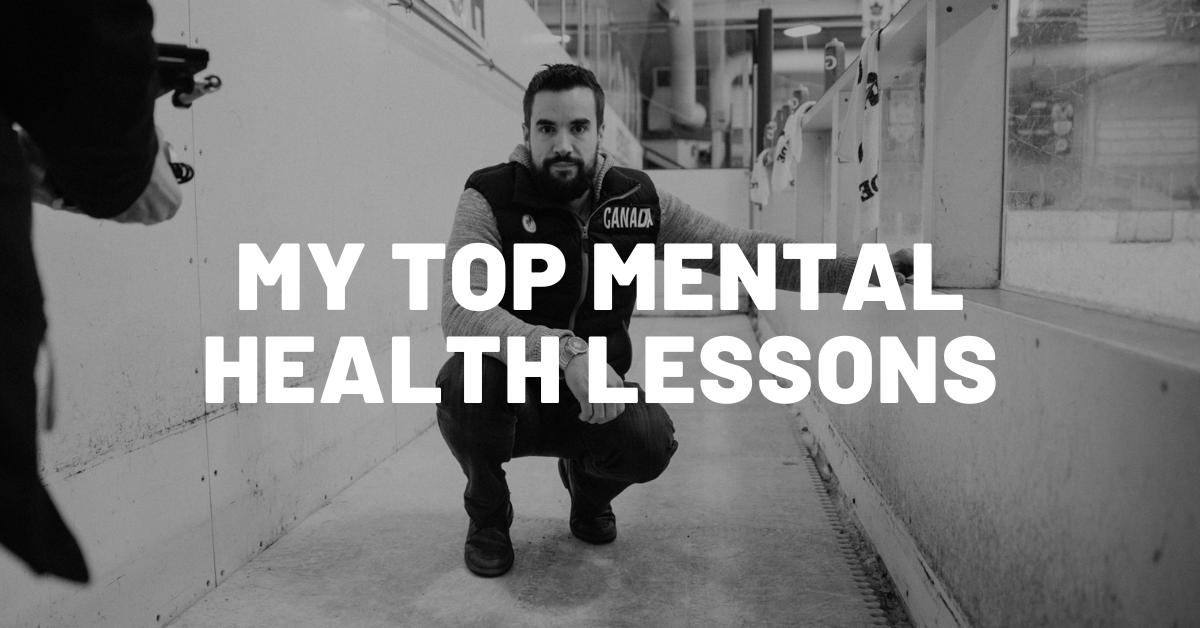As I was speaking with a manager at a private club, he was describing how the change in season brings a change in talent.
Summer employees leave to go back to school for many reasons. They may dislike working in the winter. They get tired of the industry being so demanding, or perhaps can’t find flexible enough arrangements that suit their needs.
There are many reasons why talent within a club or an organization shifts, but that doesn’t mean you have to buy into the negativity or challenges behind it.
You can choose to think differently to help you drive results and embrace change.
Reflecting upon my conversation with this manager, it showed that he was heading down the wrong path in his mind about the situation and only making things worse.
With that, here are five ways you make managing change worse, and how to avoid them.
You Hang Around the Wrong People
Surrounding yourself with pessimists or individuals who resist change can amplify feelings of doubt and apprehension. For instance, this manager was reinforcing the narrative of his colleagues who would constantly complain about the change in staff, which in turn made him begin to view it as more of a problem than it was.
The company you keep influences your mindset. Being around negative people can prevent you from seeing the benefits of change and hinder your adaptability.
Actively seek out positive influencers and team members. If the manager sought advice from another club manager that successfully attracts and retains talent during the fall, they could gain insight into best practices and potential benefits of how they could use it in their club.
You Continue a Conversation You Want to End
Engaging in repetitive, negative discussions about change, even when you internally disagree, can be draining. Again, this manager who keeps allowing a colleague to rant about challenges with a new employee might think they’re being empathetic, but it can lead to increased resistance working with them.
By giving space to negative talk, you’re reinforcing a negative mindset, making the change seem even more insurmountable.
Politely steer the conversation towards more productive topics. Encourage solution-based discussions. As a leader you might ask, “How can we better learn to work together effectively?”
You Let Go of Healthy Habits That Make You Strong
Beware of abandoning routines like regular exercise or meditation during stressful transitional periods. If you are feeling overwhelmed by change you might start skipping your morning jog because you’re “too stressed.”
Healthy habits help us cope with stress, think clearly, and stay resilient. Letting them slide can make managing change even harder.
In our discussion, we reviewed prioritizing self-care and wellness, even (and especially) during challenging times. One idea this manager came up with was to consider incorporating shorter but more frequent breaks while remembering to breathe and refocus.
You Speak Negatively to Yourself When You’re Alone
Avoid engaging in self-deprecating inner dialogue, such as telling yourself, “I can’t handle this,” or “I’m not cut out for this job anymore.”
That wasn’t the case in this scenario, but consistent negative self-talk can erode self-confidence, making the adaptation to change even more challenging.
Practice positive affirmations and self-compassion. Recognize your worth and remember past instances when you successfully navigated change. Instead of self-doubt, one might think, “This is challenging, but I’ve overcome obstacles before. I can do this.”
You Stop Trying to Solve the Problem
Giving up on finding solutions or adapting to the new environment. For instance, a department head might decide it’s too hard to train their team on a new system and just avoid it altogether.
Avoidance rarely solves issues. Instead, it often exacerbates them. The longer the delay, the harder it might become to catch up later.
Adopt a proactive mindset. Seek resources, training, or support to address the challenge head-on. The department head could organize training sessions, bring in an expert, or allocate time for team members to familiarize themselves with the new system.
In Conclusion
After speaking with this manager, it was clear to him that managing change demands more than just strategic planning—it requires a positive mindset and proactive behavior.
The way we react to change can either hinder our progress or propel us forward. By surrounding ourselves with positive influences, engaging in constructive conversations, maintaining healthy habits, fostering positive self-talk, and actively seeking solutions, we can transform challenges into opportunities for growth and improvement.
Embracing these practices not only eases the transition during times of change but also cultivates a more resilient and adaptable mindset. So, as you navigate through the ebbs and flows of your professional landscape, keep these strategies in mind and watch how a shift in perspective can lead to remarkable outcomes.
—
Whenever you are ready, if you would like to learn more, here are the best ways I can help you:
Connect with me on LinkedIn – This is where I post my best content to help you shift your mindset to drive results and embrace change. Click here
Hire me as a speaker for your next event – Watch my keynote demo reel on The Hero Mindset to see me in action. Click here
Work with me privately – If you would like to work with me and my team privately to help strengthen your commitment towards the change you are experiencing, increase your mental resilience, and perform with relentless stamina, just send me a message here and let me know the important details about your business and we’ll take care of the rest.




















